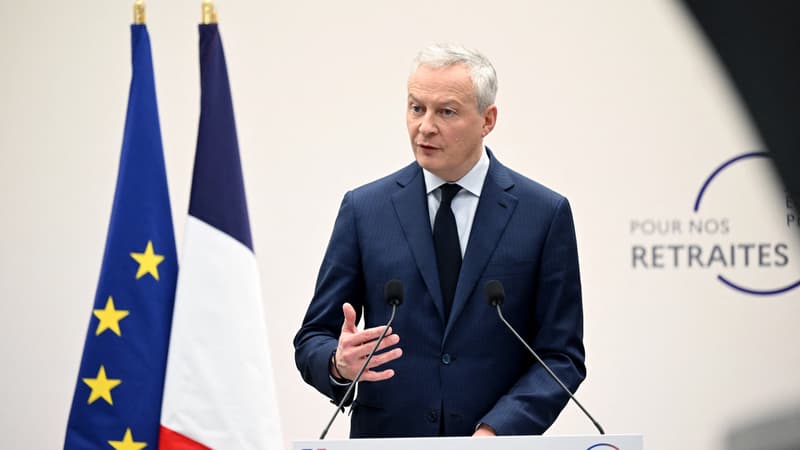17,700 million euros of additional income in 2030. During the presentation on Tuesday of the pension reform – which provides in particular for the gradual change of the legal retirement age to 64 – Bruno Le Maire took stock of the financial aspect of this long-awaited text.
The Economy Minister anticipates that these revenues will more than offset the deficit of “13.5 billion euros” that the pension system would have experienced in 2030 in the absence of the reform.
€4.2 billion for accompanying measures
According to his calculations, the executive will therefore have a kit of 4,200 million euros to finance accompanying measures. Some 3,100 million euros will be used to finance early retirement due to disability or disability, Bruno Le Maire detailed.
The measures to better take into account the hardships and long careers, together with the revaluation to almost 85% of the Smic (that is, about 1,200 euros) of the small pensions for new retirees, will cost 1,700 million euros. .
The government also plans to increase the pensions of current retirees from 2023, but has not included this measure at this stage in its calculations. Raising these pensions will cost “around one billion euros”, said Elisabeth Borne.
The remaining 600 million will be financed, therefore, “through a transfer of contributions from the occupational accidents branch” of Social Security “which is in surplus, to the pensions branch, which is in deficit.”
“Every euro counts”
By 2030, “this will guarantee the financial balance of our pay-as-you-go pension system,” concluded Bruno Le Maire. No deficit is negligible. Every euro counts for a State that has [près de] 3000 billion euros of debt”, hammered the minister.
According to the latest INSEE data published in mid-December, France’s public debt stood at 113.7% of GDP, or 2,957 million euros, at the end of the third quarter of 2022.
Source: BFM TV


